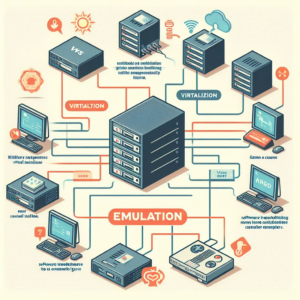HACKING/HACKERS WHAT YOU NEED TO KNOW

Hacking refers to activities that seek to compromise digital devices, such as computers, smartphones, tablets, and even entire networks.
And while hacking might not always be for malicious purposes, nowadays most references to hacking, and hackers, characterize them as unlawful activity by cybercriminals—motivated by financial gain, protest, information gathering (spying), and even just for the “fun” of the challenge.
Many think that “hacker” refers to some self-taught whiz kid or rogue programmer skilled at modifying computer hardware or software so it can be used in ways outside the original developers’ intent. But this is a narrow view that doesn’t begin to encompass the wide range of reasons why someone turns to hacking.
Hacking is typically technical in nature (like creating malvertising that deposits malware in a drive-by attack requiring no user interaction). But hackers can also use psychology to trick the user into clicking on a malicious attachment or providing personal data. These tactics are referred to as “Social Engineering”. Social engineering is the description of methods that attackers use to get the victims to breach security protocol or give up private information. There are many tactics that lead to this goal, and they rely on psychological manipulation, such as seducing the victims by playing to their greed, vanity, or their willingness to help someone.
Types of hacking/hackers
Broadly speaking, you can say that hackers attempt to break into computers and networks for any of four reasons.
- There’s criminal financial gain, meaning the theft of credit card numbers or defrauding banking systems.
- Gaining street credit and burnishing one’s reputation within hacker subculture motivates some hackers as they leave their mark on websites they vandalize as proof that they pulled off the hack.
- Then there’s corporate hack, when one company’s hackers seek to steal information on a competitor’s products and services to gain a marketplace advantage.
- Finally, entire nations engage in state-sponsored hacking to steal business and/or national intelligence, to destabilize their adversaries’ infrastructure, or even to sow discord and confusion in the target country. (There’s consensus that China and Russia have carried out such attacks, including one on Forbes.com. In addition, the recent attacks on the Democratic National Committee [DNC] made the news in a big way—especially after Microsoft says hackers accused of hacking into the Democratic National Committee have exploited previously undisclosed flaws in Microsoft’s Windows operating system and Adobe Systems’ Flash software. There are also instances of hacking courtesy of the United States government.)
There’s even another category of cybercriminals: the hacker who is politically or socially motivated for some cause. Such hacker-activists, or “hacktivists,” strive to focus public attention on an issue by garnering unflattering attention on the target—usually by making sensitive information public. For notable hacktivist groups, along with some of their more famous undertakings.
Related Post:{loadmoduleid 100}













Post Comment